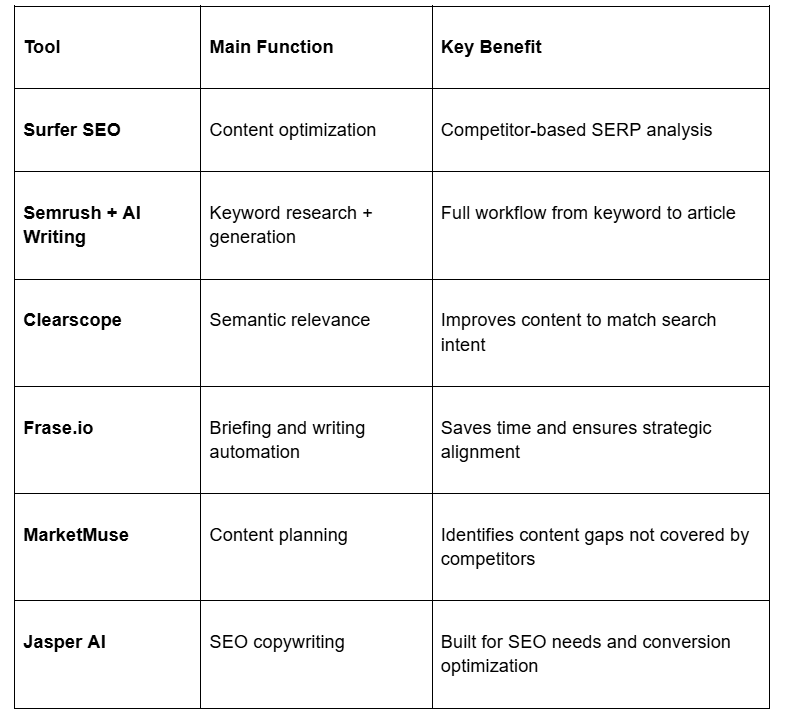Over the past few years, generative artificial intelligence has emerged as a transformative tool across various industries, and the field of SEO is no exception. In this article, we explore how some of the most recognized generative AI models work and their practical usefulness in generating content for search engine optimization strategies.
Introduction to Generative AI
Generative artificial intelligence is based on deep learning models capable of creating content—such as text, images, or even videos—based on patterns learned from large volumes of data. These models, especially those developed using transformer architectures, have proven highly effective in generating coherent and contextually appropriate content.
Recent advancements in AI have led to the development of models that can adapt language and generate high-quality text, opening up a wide range of possibilities in sectors like digital marketing, advertising, and particularly SEO (Search Engine Optimization).
Leading Generative AI Models
1. OpenAI Language Models (GPT-3 and GPT-4)
GPT (Generative Pre-trained Transformer) models, developed by OpenAI, are perhaps the most well-known in the realm of automated text generation.
- GPT-3: With 175 billion parameters, GPT-3 was a pioneer in showing that a neural network trained on a large dataset can generate coherent text across a variety of contexts.
- GPT-4: Featuring improvements in understanding and contextual generation, this model offers more accurate and adaptable responses for specific tasks, which is crucial for SEO optimization applications.
These models are trained on massive corpora of data and, while not perfect, they enable the creation of creative and well-structured content. In SEO, they’re used to write articles, blog posts, product descriptions, and other formats requiring precision, semantic relevance, and keyword richness.
2. Google Models (BERT, T5, and Others)
Google has developed several natural language processing models that, while initially intended to improve search query comprehension, have also found applications in content generation.
- BERT (Bidirectional Encoder Representations from Transformers): Known for its strength in contextual language understanding, it allows for content generation that aligns with user intent.
- T5 (Text-to-Text Transfer Transformer): This model turns any NLP problem into a text generation task, opening broad possibilities for SEO-optimized content creation.
Both models have been integrated into tools and services that help generate content which naturally responds to user queries, considering semantics and search intent.
There are also alternatives like BLOOM (BigScience), an open-source model that serves as a strong alternative to GPT. It is highly effective in generating multilingual content and is designed to be accessible and customizable, making it especially useful for SEO-related tasks.
3. Other Emerging Models and Tools
In addition to the tech giants mentioned above, other models and platforms are gaining traction in the field of generative AI. Tools specialized in copywriting and automatic SEO content generation leverage these algorithms to create optimized and personalized texts based on user needs. Many of these applications are integrated into digital marketing platforms, enabling the automation of repetitive tasks and mass personalization.


There are also niche solutions tailored to specific industries, such as Smartvel’s AI-powered solutions for the travel and tourism sector, which help create destination landing pages (https://www.smartvel.com/travel-seo) or travel planners (https://www.smartvel.com/products/destination-content/trip-planner).
Practical Applications in SEO
Optimized Content Generation
One of the most valuable uses of generative AI in SEO is its ability to efficiently produce optimized content. These tools can:
- Write articles and blog posts that include the right keywords.
- Generate compelling meta descriptions and titles to improve CTR.
- Adapt the tone and style to the target audience.
- Generate images and identify objects and faces for tagging.
Keyword and Topic Research
Some models can analyze large volumes of data and trends, making it easier to identify emerging keywords and relevant topics. This helps SEO professionals proactively adjust their content strategies and stay ahead of shifting market needs.
Automation and Time-Saving
Content generation automation allows companies to focus on strategic and creative aspects, leaving routine and repetitive tasks to AI. The result is greater efficiency in content production and optimized resource use, leading to more effective digital marketing strategies.
Personalization and Real-Time Adaptation
Advanced AI models can tailor content based on user behavior and preferences. This means websites can deliver personalized texts that boost relevance and, in turn, improve search engine rankings. The ability to adapt responses to user search intent is key to improving the user experience and reducing bounce rates.

Ethical Considerations and Limitations
Despite the benefits, some important considerations must be kept in mind:
- Quality and Accuracy: While these models have improved significantly, they can still produce content with errors or outdated information. It’s crucial to review and edit AI-generated text before publishing.
- Plagiarism and Originality: Using generative AI raises questions about originality. Avoid direct copying and ensure the content reflects well-researched, unique information.
- Transparency: Companies and creators should be transparent about using these tools, disclosing to their audience that some content elements have been generated with AI, without compromising the credibility of the information provided.
The integration of generative AI models into SEO strategy has proven to be a powerful tool. From optimized content creation to real-time personalization, these technologies help marketers boost the relevance and efficiency of their content. However, it’s essential to use these tools carefully and rigorously, reviewing and complementing generated information to ensure accuracy and originality. The constant evolution of AI continues to open new possibilities, making the future of SEO a fertile ground for innovation and digital optimization.





